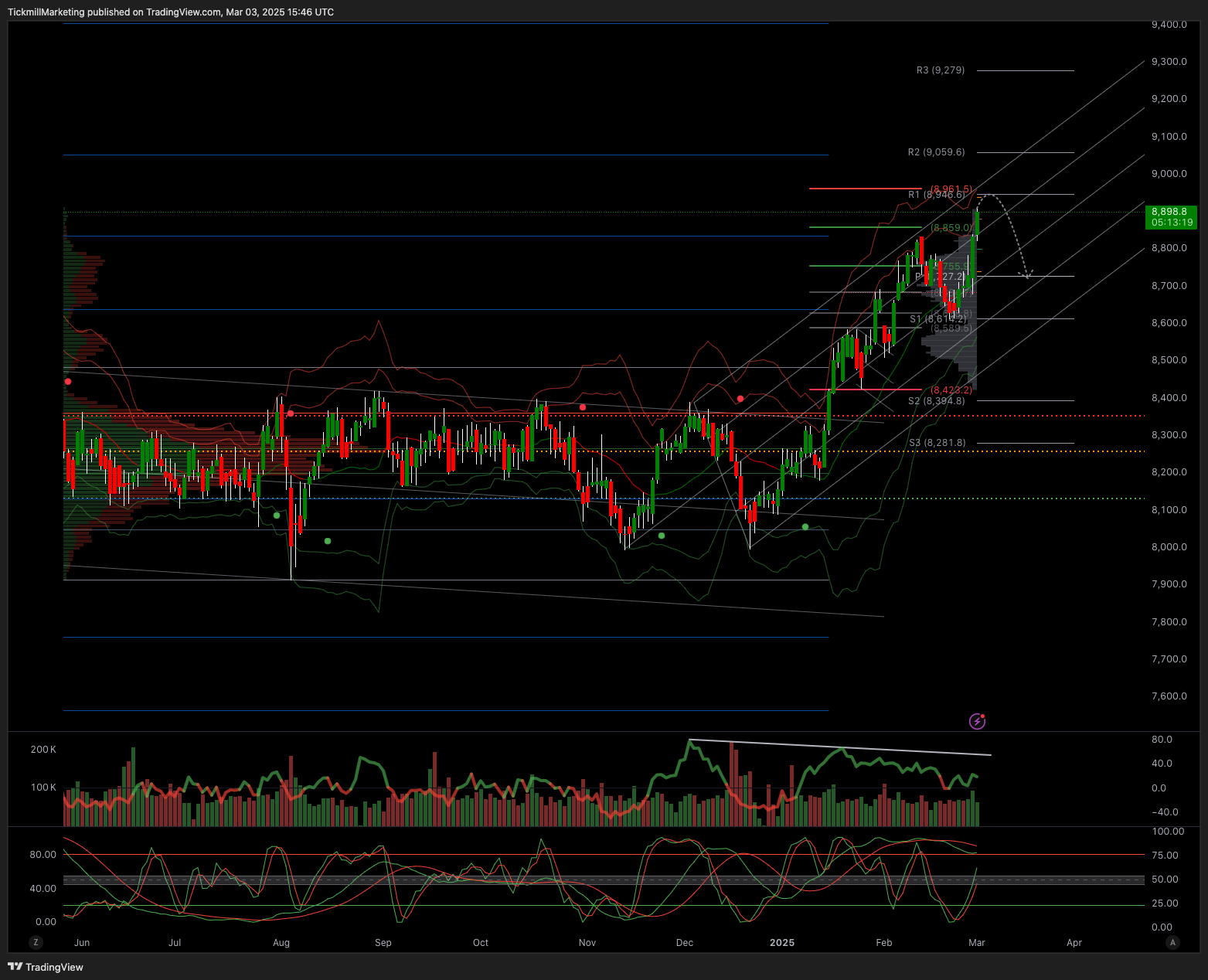The FTSE Finish Line: March 03 - 2025

The FTSE Finish Line: March 03 - 2025
Patrick Munnelly, Partner: Market Strategy, Tickmill Group
A significant rise in defense stocks propelled Britain's FTSE 100 to all-time highs on Monday, as investors reacted positively to the potential for increased military expenditures in Europe. European leaders acknowledged on Sunday the necessity of boosting defense budgets, with France and Britain set to propose a one-month partial ceasefire in the Russia-Ukraine conflict. The decision to raise defense spending is aimed at demonstrating to U.S. President Donald Trump that Europe can secure its defense, especially after Ukraine's Volodymyr Zelenskiy confronted the U.S. president and cut short his Washington visit. Britain's leading index rose by 0.7%. Nonetheless, ongoing uncertainty regarding the trajectory of the country's economic growth, along with the impending threat of U.S. tariffs, could present challenges to the index's strong performance. The S&P Global Purchasing Managers' Index for UK manufacturing indicated that British factories reduced their workforce at the quickest rate in almost five years last month. Nevertheless, manufacturers expressed the most optimism in six months, anticipating an economic revival.
Single Stock Stories & Broker Updates:
British defence stocks have risen between 5% and 19% following an agreement among European leaders to increase defence spending. The FTSE350 aerospace and defense index rose 8.4%, while the overall FTSE 350 index gained only 0.27%. BAE Systems led the FTSE 100 with an 18.5% increase to a record high of 1,666.5p. Rolls-Royce increased nearly 6% to 788.6p, while Chemring Group, Babcock International, and Qinetiq saw gains between 5% and 10%. Year-to-date, BAE is up ~37%, Rolls-Royce ~37%, Chemring ~21%, Babcock ~47%, and Qinetiq ~8%. Overall, the FTSE350 Aerospace and Defense index has surged over 250% since the Ukraine invasion, far surpassing the FTSE 350's 14.77% gain.
Senior Plc shares fell ~4.5%, ranking among top losers on the FTSE 250 index. Adj PBT fell 14% YoY, with adj EPS down 30% to 7.17p. Jefferies maintains 'Buy', PT at 185p (+14% upside), expecting upside post-aerostructures sale. The company is in advanced talks to sell its aerostructures business, which is expected to turn profitable this year. The stock fell ~1.51% in the past year.
Spirent Communications is among the top gainers on the FTSE 250, rising 2.4% to 190p. Keysight Technologies signs a $410 mln deal with Viavi Solutions for Spirent's high-speed ethernet and network security business, with an additional $15 mln contingent cash. Keysight, which outbid Viavi to buy Spirent for ~£1.16 bln last March, expects the sale to complete shortly after Spirent's acquisition. Stock has gained over 74% in the past year.
Bunzl's stock dropped 6.65% to 3,144p, hitting its lowest since August 6, making it the biggest loser on the FTSE 100. The company reported a 3.6% decline in FY PBT but maintained its 2025 revenue growth guidance. Bunzl plans to invest £700M annually over three years in acquisitions and potential capital returns. Year-to-date, the stock was down 3.34% as of Friday's close.
Ocado's stock drops 6.6%, the lowest since Nov 2017, after a 16% decline last week due to concerns over the slow rollout of robotic sites. Barclays maintains an "underweight" rating, citing risks to the module pipeline and no positive cash flow expected until FY27. The stock is rated a "hold" on average, with a YTD decline of ~18%.
Technical & Trade View
FTSE Bias: Bullish Above Bearish below 8950
Primary support 8700
Below 8700 opens 8600
Primary objective 9050
Daily VWAP Bullish
Weekly VWAP Bullish
Disclaimer: The material provided is for information purposes only and should not be considered as investment advice. The views, information, or opinions expressed in the text belong solely to the author, and not to the author’s employer, organization, committee or other group or individual or company.
Past performance is not indicative of future results.
High Risk Warning: CFDs are complex instruments and come with a high risk of losing money rapidly due to leverage. 72% and 73% of retail investor accounts lose money when trading CFDs with Tickmill UK Ltd and Tickmill Europe Ltd respectively. You should consider whether you understand how CFDs work and whether you can afford to take the high risk of losing your money.
Futures and Options: Trading futures and options on margin carries a high degree of risk and may result in losses exceeding your initial investment. These products are not suitable for all investors. Ensure you fully understand the risks and take appropriate care to manage your risk.
Patrick has been involved in the financial markets for well over a decade as a self-educated professional trader and money manager. Flitting between the roles of market commentator, analyst and mentor, Patrick has improved the technical skills and psychological stance of literally hundreds of traders – coaching them to become savvy market operators!
